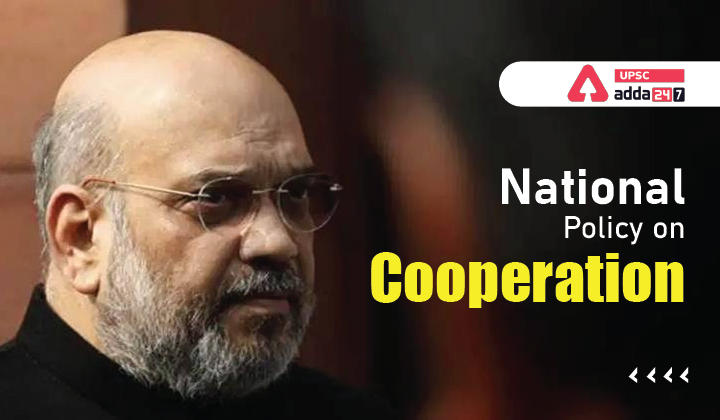Table of Contents
National Policy on Cooperation- Relevance for UPSC Exam
- GS Paper 2: Governance, Administration and Challenges- Government policies and interventions for development in various sectors and issues arising out of their design and implementation.
National Policy on Cooperation in News
- Recently, suggestions on the draft Policy on Cooperation were sought from the stakeholders including general public through the website of the Ministry of Cooperation.
- The Government is formulating a new national level policy for cooperatives.
National Conference on the new Cooperation Policy
- About: National Conference on the new Cooperation Policy was held on 12th and 13th April, 2022 with Cooperation Secretaries / RCSs from all the States/UTs.
- Agenda: In National Conference on the new Cooperation Policy discussions were inter alia held on-
- Legal framework, identification of regulatory, policy & operational barriers;
- Ease of doing business;
- Reforms for strengthening governance;
- Promoting new and social cooperatives;
- Revitalizing defunct ones;
- Making cooperatives vibrant economic entities;
- Cooperation among cooperatives and increasing membership of cooperatives.
Steps taken by Government to Strengthen India’s Cooperative Architecture
- Income Tax Reduction: Government has provided relief to cooperative sugar mills by clarifying that they shall not be subjected to additional income tax for paying higher sugarcane prices to farmers up to the Fair and Remunerative Price (FRP) or State Advised Price (SAP).
- Surcharge Reduction: Government reduced the surcharge for cooperative societies from 12% to 7% for those having a total income of more than Rs. 1 crore and up to Rs. 10 crore.
- Further, to provide a level playing field between co- operative societies and companies, Minimum Alternate Tax (MAT) rate for cooperative societies was reduced from 18.5% to 15%.
- Credit Guarantee Fund Trust for Micro and Small Enterprises (CGTMSE): It notified non-scheduled Urban Co-operative Banks, State Co-operative Banks and District Central Co-operative Banks as Member Lending Institutions of the scheme with specified eligibility criteria.
- This will help in providing adequate, affordable and timely credit to the co-operative institutions to give a boost to the co-operative based economic development model.
- Expansion of mandate of Government e-Marketplace – Special Purpose Vehicle (GeM – SPV): It has been expanded to allow cooperative societies to register as buyers on the GeM platform.
- Digitization of Primary Agriculture Credit Societies (PACS): a centrally sponsored project for digitalization of 63,000 functional Primary Agriculture Credit Societies (PACS), with a budgetary outlay of Rs 2,516 crore, has been sanctioned to revitalize the cooperative sector.
- Model By-laws for PACS: In order to diversify the business activities of PACS and make them vibrant multipurpose economic entities, draft model Bye-Laws are being prepared in consultation with State Governments, National Cooperative Federations and other stakeholders.
- Scheme to Promote Cooperation: A new scheme titled “Cooperation to Prosperity” is being formulated in consultation with all the stakeholders for all-round development of cooperatives at all levels.
- National Co-operative Database: In order to facilitate the Government to make appropriate policy interventions, a National Co-operative Database is being created in consultation with State/UT Governments, National Co-operative Federations and other stakeholders.
- Re-orienting Training and Education: In order to modernize and professionalize the education and training in the cooperative sector, steps are being taken to reorient the training and educational Cooperative Institutions in consultation with all the stakeholders.
Constitutional Provisions Regarding Cooperatives
- The Constitution (97th Amendment) Act, 2011 added a new “Part IXB” right after Part IXA (Municipals) regarding the cooperatives working in India.
- Article 19(1)(c) under Part III of the Constitution: provides for “cooperatives”, allowing all the citizens to form cooperatives by giving elevating it to the status of a fundamental right.
- Article 43B was added in the Directive Principles of State Policy (Part IV) regarding the “promotion of cooperative societies”.
National Conference on Cooperation Policy




 TSPSC Group 1 Question Paper 2024, Downl...
TSPSC Group 1 Question Paper 2024, Downl...
 TSPSC Group 1 Answer key 2024 Out, Downl...
TSPSC Group 1 Answer key 2024 Out, Downl...
 UPSC Prelims 2024 Question Paper, Downlo...
UPSC Prelims 2024 Question Paper, Downlo...
